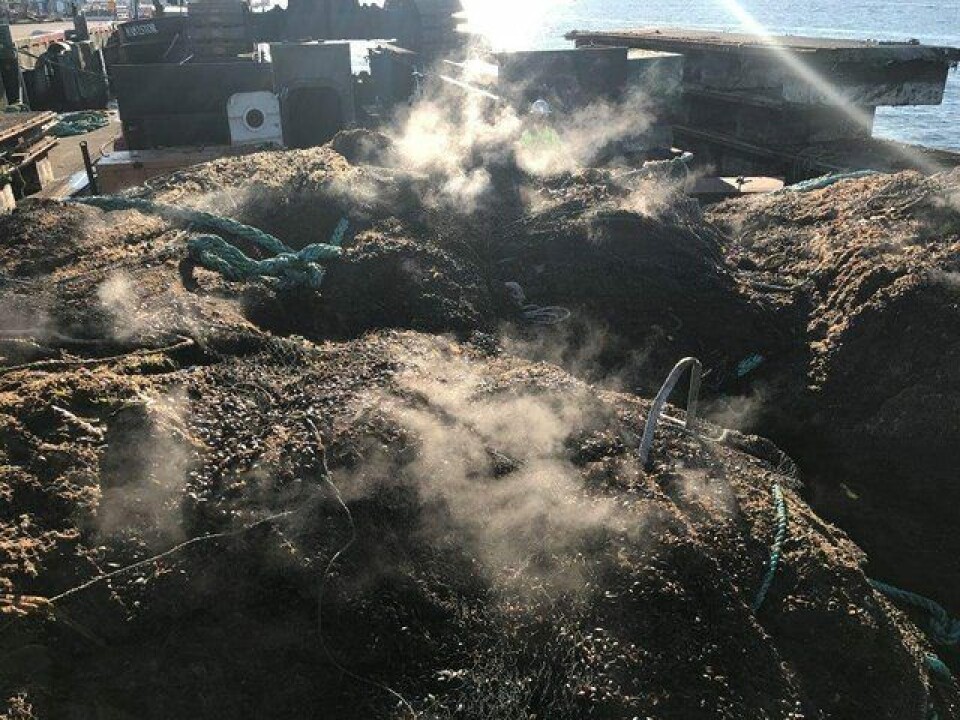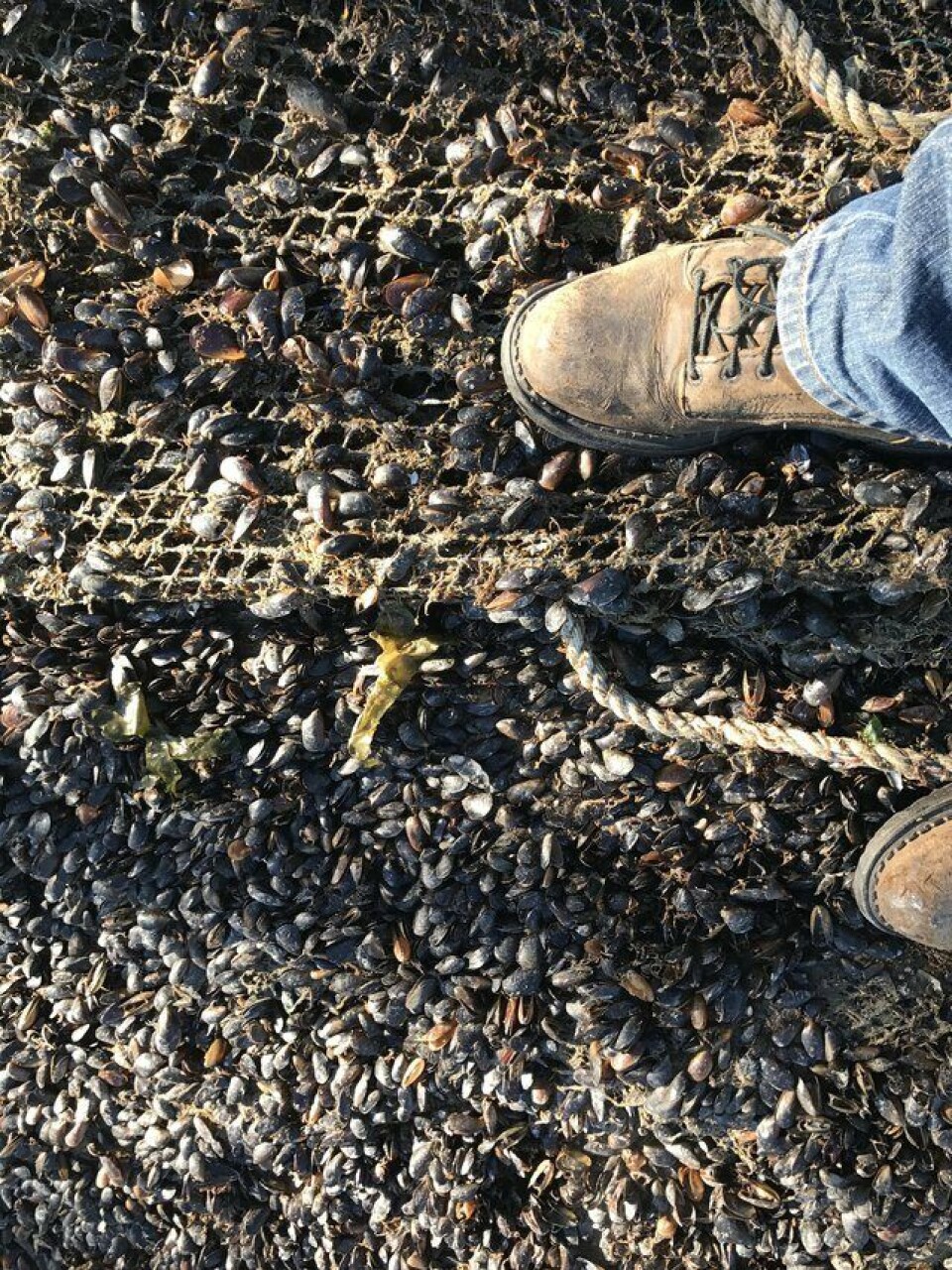
Mussels may have caused Cooke farm collapse
Investigators probing the collapse of a Cooke Aquaculture Pacific fish farm that caused the escape of 160,000 Atlantic salmon last summer are examining mussels and other sea life coating the nets as a cause, the Seattle Times has reported.
Photographs obtained by the newspaper under a public-records request show portions of the nets at Cooke’s farm at Cypress Island in Puget Sound, Washington state were so fouled with kelp, algae and especially mussels that the net was no longer visible.
The Seattle Times reported that Cooke had long known it needed to tackle the problem of drag at the farm, which faced against the current. It wrote that the company planned to reposition the farm to lessen the forces of drag on the structure that it had already identified as its top priority for replacement because of metal fatigue and corrosion.
But it first planned to harvest its fish which, at 4.5kg, were nearing harvest weight.

The Seattle Times showed Jim Thomson, senior principal oceanographer and a fluid-mechanics expert at the Applied Physics Lab at the University of Washington, some of the same photos investigators have focused on. He said: “I would not be surprised if the drag forces are at least doubled, and possibly much more, with so much fouling.”
Machines out of service
Notes obtained by the newspaper, written by state investigators from their interviews with Cooke employees after the incident, show employees confirmed that two of three machines used to clean the nets were out of service and being repaired, reducing the ability to keep up with biofouling, a problem that intensifies in the summer.
The Seattle Times said Cooke press spokesman Joel Richardson declined to comment on the nets or maintenance issues at Cypress Island.























































